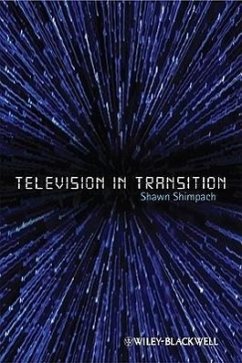From a few national broadcasters to hundreds of digital channels and from a box in the living room to screens of every size, everywhere, television looks and feels very different now. Today television programming must "translate" to different nations, cultures, broadcast systems; different formats, distribution outlets, and screen sizes, while simultaneously attracting and sustaining audience interest over the time it takes to travel through these spaces. Blending institutional and textual analyses, Television in Transition examines the return to action narratives with individual (super) heroes intended to navigate this new, international, multi-channel universe. Case studies of Highlander: The Series, Smallville, 24, and Doctor Who call up new questions of political, economic and cultural citizenship, crossing borders, splitting affinities, and pushing boundaries through reinterpretations of long-time televisual representational themes (white masculinity, heroism, nation, genre, etc.) within this era of transformation and perceived industry crisis. Television in Transition examines the narrative and institutional paradigms of textual afterlife to offer a highly original explanation of how innovation takes place within the television industry's management of predictability, risk, and familiarity.








